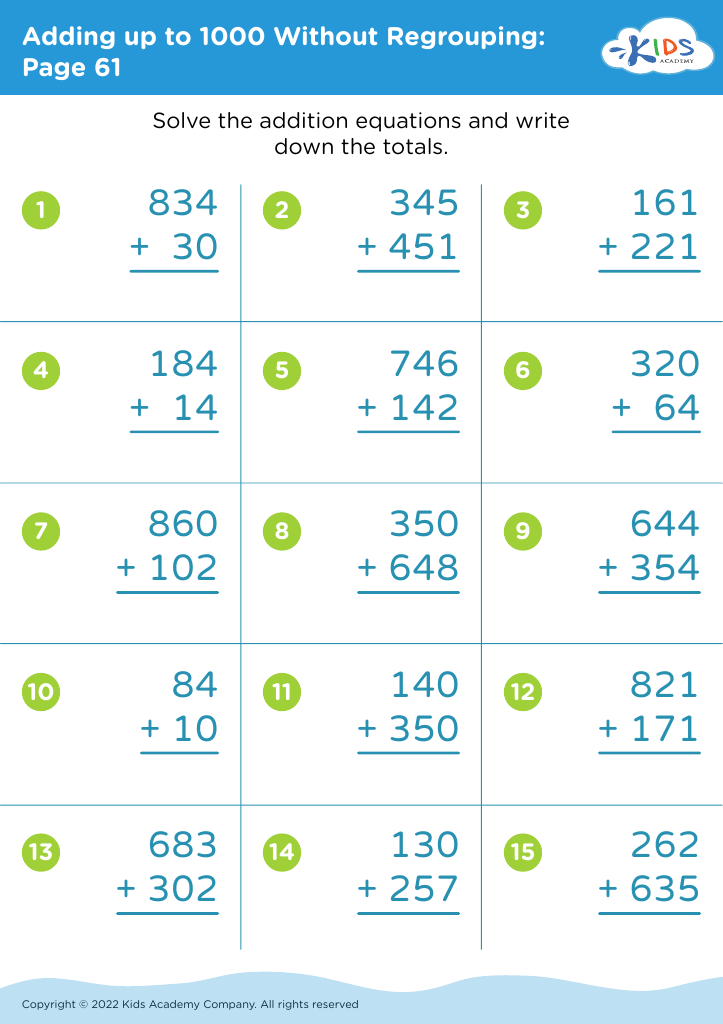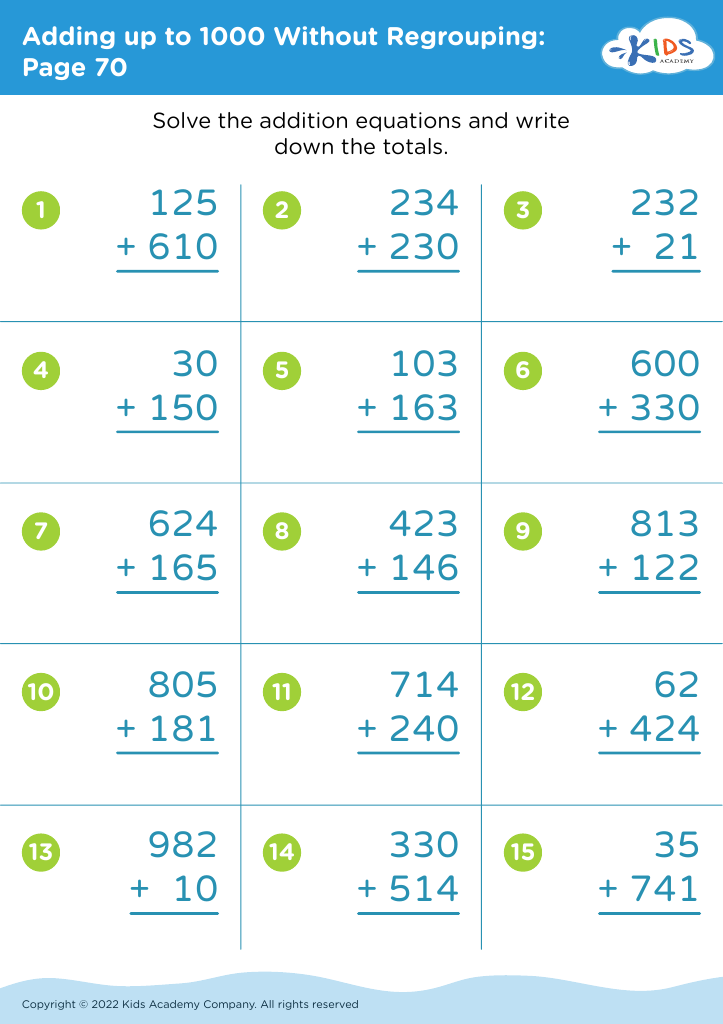Basic Addition Adding up to 1000 Without Regrouping Worksheets for Ages 4-9
4 filtered results
-
From - To
Enhance your child's math skills with our "Basic Addition Adding Up to 1000 Without Regrouping Worksheets." Designed for children aged 4-9, these worksheets provide a fun, engaging way to master essential addition concepts. Each worksheet focuses on problems that require no regrouping, helping young learners build confidence and proficiency in basic adding techniques. With a variety of exercises, our resources cater to different learning styles and keep students motivated. Perfect for both classroom and home use, these worksheets will support your child's mathematical journey, paving the way for future success. Start their adventure in understanding numbers today!
Understanding basic addition is a fundamental skill for young learners, especially for ages 4-9, as it lays the groundwork for all future math concepts. Mastering addition up to 1000 without regrouping helps children develop number sense and boosts their confidence, both of which are essential for academic success. It teaches students to understand place value, recognize patterns, and perform calculations accurately, all crucial skills for higher-level math.
Additionally, this skill encourages critical thinking and problem-solving abilities. As children learn to add numbers, they begin to visualize numerical relationships, which is vital in everyday situations like shopping or budgeting. Ensuring that parents and teachers prioritize this skill can promote a positive attitude towards mathematics, counteracting math anxiety that is often observed in later years.
Moreover, having a solid grasp of addition enables children to transition smoothly into more complex operations involving subtraction, multiplication, and division. This understanding not only aids in academic achievement but also prepares them for real-world scenarios where math plays a significant role, such as science and technology fields. Therefore, investing time in teaching basic addition effectively is essential for building a strong mathematical foundation that supports lifelong learning.














